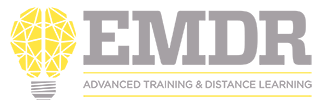de Jongh and Matthijssen
Showing all 7 results
-

EMDR 2.0 – Enhancing EMDR Therapy by Ad de Jongh, PhD and Suzy Matthijssen, PhD – (6 CE Hours)
Sold By: EMDR Advanced Trainings & Distance Learning -

Masterclass EMDR 2.0 in Clinical Practice (2024) ~~ August 30, 2024 ~~ and Treating Personality Disorders with EMDR Therapy ~~ August 31, 2024 ~~ (6 CE Hours each day) with Suzy Matthijssen, Ph.D. and Ad de Jongh, Ph.D.
Sold By: EMDR Advanced Trainings & Distance Learning -

How To Set Up Your Own CPTSD Treatment Plans and How to Enhance the Treatment – Suzy Matthijssen (GROUP K: May 6, 13, June 17, 24, 2024 )
Sold By: Mark Nickerson -

3 Days of Learning – 6 CE Hours/day – De Jongh and Matthijssen
Sold By: EMDR Advanced Trainings & Distance Learning -

EMDR Therapy for Panic Disorder, OCD and Specific Phobias – 6 CE Hours – De Jongh and Matthijssen
Sold By: Mark Nickerson -

Simplifying Complex PTSD: New Treatment Approaches – 6 CE Hours (Bundle Options) – De Jongh and Matthijssen
Sold By: EMDR Advanced Trainings & Distance Learning -

EMDR 2.0: An Enhanced Version of EMDR Therapy – 6 CE Hours (Bundle Options) – De Jongh and Matthijssen
Sold By: EMDR Advanced Trainings & Distance Learning
